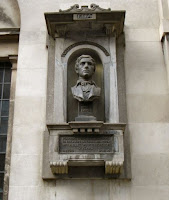Charles Lamb occupies a unique place in the history of the English prose by virtue of his unique style. Though critics have more or less been unanimous in labeling Lamb’s style as ‘imitative’ of the Elizabethan prose writer like Browne, Burton, Fuller, it is not his imitativeness that strikes the modern readers, but his ability to stamp upon the old Elizabethan style with his mark of personality that lends a pleasing quietness to his style with versatility and insight, with humour and spontaneity. Read More Essay No doubt, there are many points in which Lamb imitates the Elizabethan writer – for example, in his use of words in the obsolete or Elizabethan senses, his fondness for alliteration, his use of compound words, his formation of adjectives from the proper names, his frequent use of Latinism. However, he is unique by the virtue of his telling stories bearing his personality as forever sweet memories, the quality as one of “Elia's” distinctive hallmarks, along with his fondness for the obscure and other idiosyncrasies.
For instance, when Lamb calls in Old China an Old China cup ‘Speciosa Miraculta’ we get a taste of his Latinism. His fondness for alliteration is evident in such sentences as “When Dorimant -------------- assists the apple woman” or in his reference to Susan Winstanley overhearing Joseph Paice – “In rather rough language rating a young woman --------” or in his reference to a ‘flowery mid’ painted on the “other side of the China cup existing on the “other side of the same strange stream” which a woman was crossing in her little fairy boat. Lamb’s use of words in the obsolete or Elizabethan senses is evident in his use of word “obsequiousness” in the Elizabethan sense of “respectful devotion” while today the word means a show of servility. Read More Essay The early 17th century prose writers are noted for the profuse use of metaphors. Such metaphoric style of language is also evident in Modern Gallantry. One such example would suffice: “The roses that had long laded thence still bloomed for him in those withered yellow cheeks”.
 |
| Charles Lamb |
Procter has pointed out that Lamb is unique not because of his ‘Elizabethanness’, but that one of the most invigorating aspects of Lamb’s style is his dramatic characterization. Though his ‘Phantasm; or imaginary characters are best revealed in his essays The South Sea House, My Own Relation and The Dream Children, we also get a glimpse of – Lamb’s ability of characterization. James Elia of My Relations, but John L- The Dream Children, so handsome and spirited youth, and a ‘king’, Charles’ grandmother Mrs. Field are the living pictures in his picture gallery. Read More Essay Charles’s sweetheart Alice Winterton is the other shadowed reality in his Essays of Elia. In the essay New Year's Eve, which first appeared in the January 1821 issue of The London Magazine, Lamb reflects wistfully on the passage of time.Here the Past time is personified and is placed in the picture gallery of life.
Lamb’s another essential component style is his profuse use of quotation and allusions to the older texts. Lamb was a prolific reader and the huge influx of quotations shows that they are constantly in his mind, and are a natural component of his style not raked up on occasion. For instance, the phrase ‘Lusty Brimmers’ and ‘coming guest’ are drawn from Charles Cotton’s New Year’s Poem while the ‘Wilderness of Lieonardoes’ occurs in Shakespeare’s The Merchant of Venice (“I would not have given it for the wilderness of monkeys”.) his constant allusive style is evident from his allusion to Dicaster, a character in Issac Valton’s book The Complete Angler or his reference to Rosalind or Viola, the Shakesperean heroines, or his allusion to Doriment, a young gallant hero in Etherege’s The Man of Mode.
George Barnett and later Gerald Monsman, two renowned critic of 20th century revived the Lamb’s essays in its true defining category. According to George Barnett Lamb, The most intimate of the early-19th-century essayists, relied on stylistic artifice ("whim-whams," as he referred to his antique diction and far-fetched comparisons) and a contrived persona known as "Elia." Read More Essay Farther he has observed, "Lamb's egoism suggests more than Lamb's person: it awakens in the reader reflections of kindred feelings and affections" (Charles Lamb: The Evolution of Elia, 1964). To conclude we may say that Lamb’s style is a mixture certainly of many styles, but a chemical not a mechanical mixture. “He plays”, says Artur Compton –Rickett, “with his thoughts as the wind plays with leaves; tossing them hither and thither circling them round in strange eddies; scattering , combining, in all manner of queer ways. Dearly did he love to chew the cud of a bygone vision to dally with his dreams to reinvest the common streets of London and her well-worn sights, with glamour of retrospective fantasy?”

this is the note which i was searching sir.thank u sir
ReplyDeleteYour contribution is really appreciating. You arouse interest in the lovers of literature. I'm very glad to go through the blogspot. Thanks alot.
ReplyDeleteThanks dear Bhanudas for your inspiring words.
ReplyDeleteexactly what i needed at this hour...thanks a lot sir...stay blessed.
ReplyDeleteThanks Fiona for your comment.
ReplyDeleteHow do we find lyric in Lamb's prose?
ReplyDelete